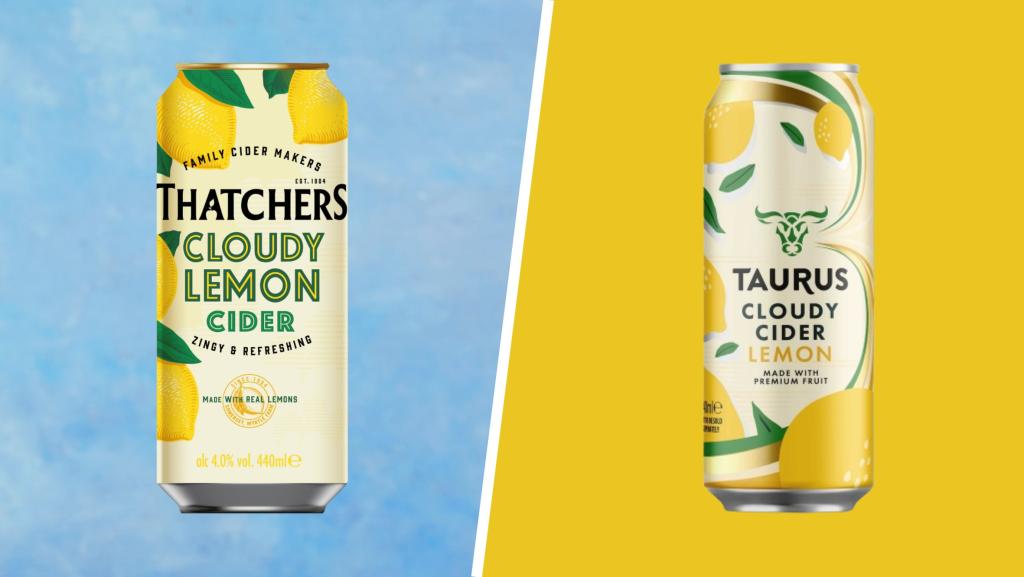
In a significant legal victory, the Supreme Court has refused Aldi’s permission to appeal against the Court of Appeal’s decision in favour of Thatchers. This marks the end of a determined and fruitful journey for Thatchers and its legal representatives, Stephens Scown, in their fight against supermarket “dupes”.
The decision means that brands now have a clear message from the courts – it doesn’t require consumers to be confused for there to be an infringement. The court held that consumers would link the Aldi “dupe” with Thatchers’ Cloudy Lemon cider, and Aldi had intended to create that link. This “riding on the coattails” of Thatchers’ product and their reputation in the marketplace infringed the company’s rights.
Brands should take note of the protective and pro-active strategy that Stephens Scown has adopted with Thatchers, as it is vital that brands have the right portfolio of intellectual property, and clearance in the marketplace, to successfully enforce their brands. With other brands taking this approach, Thatchers v Aldi marks the end of the dupe/copycat business model, and no longer can supermarket products be “like brands, only cheaper”.
How did we get here?
The Battle Begins
The dispute began in 2022 when Thatchers initiated legal proceedings against Aldi for infringing on its registered trade mark for the popular ‘Cloudy Lemon’ cider. Thatchers had introduced the cider in early 2020, and Aldi followed suit in May 2022 with its own version. Thatchers, represented by Stephens Scown, relied on sections 10(2) and 10(3) of the Trade Marks Act 1994, as well as passing off. These sections state that infringement occurs when a similar or identical mark causes confusion or association with the original mark, or takes unfair advantage of the original mark’s distinctive character or reputation.
Initial Setback
In January 2024, the High Court (Intellectual Property Enterprise Court) ruled in Aldi’s favour, dismissing Thatchers’ claims. The court found a low degree of similarity between the Thatchers trademark and Aldi’s products, and concluded that, although Aldi had only benchmarked Thatcher’s Cloudy Lemon product, and had intended to create a “dupe”, it had not taken unfair advantage of Thatchers’ reputation. Undeterred, Thatchers and Stephens Scown appealed to the Court of Appeal, focusing on the dismissal of unfair advantage.
Court of Appeal Overturns Decision
In December 2024, the Court of Appeal overturned the initial dismissal. Lord Justice Arnold ruled that Aldi’s product closely resembled the Thatchers trade mark, and that Aldi intended to remind consumers of the Thatchers mark to assist in selling its cider. The court found that Aldi had obtained an unfair advantage by profiting from Thatchers’ investment in developing and promoting the producer’s cider.
Supreme Court Denies Appeal
Unsatisfied with the Court of Appeal’s decision, Aldi sought permission to appeal to the Supreme Court. Aldi argued that the Court of Appeal had made an error in determining that copying constituted unfair advantage, effectively creating a new wrong of ‘mere copying’. Thatchers defended the decision, clarifying that the Court of Appeal did not create any new wrong and arguing that Aldi’s contentions were based on misconceptions. Ultimately, the Supreme Court refused Aldi’s appeal, stating that Aldi’s application did not raise an arguable point of law.
Implications for Businesses
The refusal of Aldi’s appeal solidifies the Court of Appeal’s decision, confirming that Aldi took unfair advantage of the Thatchers trade mark. This landmark ruling is the first of its kind in the UK and demonstrates that brands with well-managed intellectual property portfolios can stand up to competitors and supermarkets that create “dupes” and “copycat” products.
At Stephens Scown, our dedicated Trade Marks team is ranked ‘Elite Status’ in the World Trade Mark Review and can support businesses with filing, prosecuting, and registering applications in the UK. For more information, please email IPDP@stephens-scown.co.uk or call 0345 450 5558.
